5 Best EV Stocks to Buy in September 2021
Please note that we are not authorised to provide any investment advice. The content on this page is for information purposes only.
EV (electric vehicle) stocks have whipsawed in 2021. While they continued their good run in the first quarter, and most of them rose to record highs, there was a sell-off thereafter. Over the last couple of months, EV stocks have recovered some of their losses and some have even turned positive for the year.
The pivot towards electric cars is among the biggest transformation that we’ll see over the next couple of decades. Here are the five best EV stocks that you can buy in September 2021.
-
Lucid Motors (NYSE: LCID)
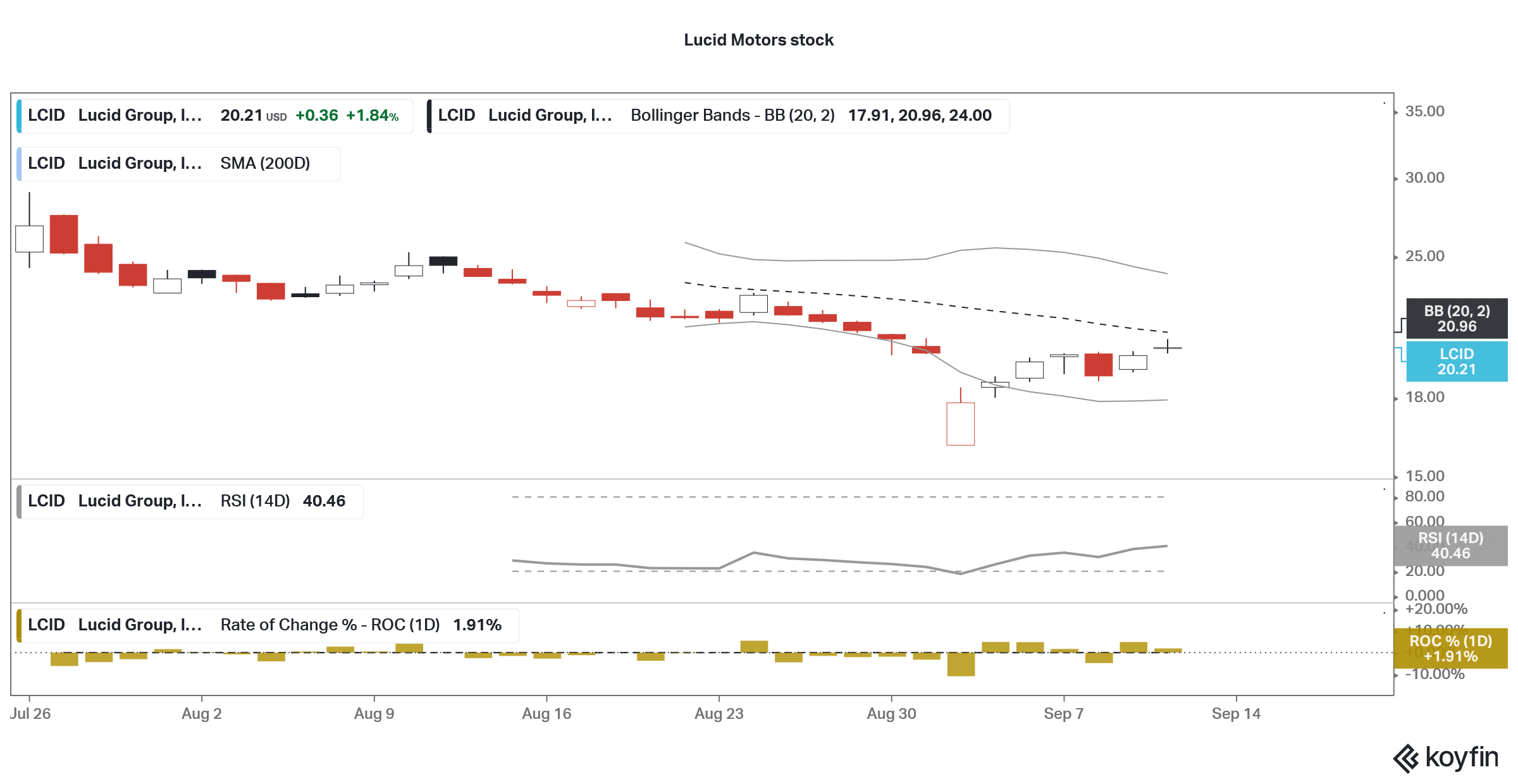
Lucid Motors went public earlier this year through a reverse merger with Churchill Capital IV (CCIV). It was possibly the most hyped SPAC (special purpose acquisition company) merger of 2021. However, the stock has looked weak and trades at a steep discount to its pre-merger highs.
With Lucid Motors set to begin the deliveries of its Air sedan soon, it looks among the best EV stocks to buy in September. Earlier this week, Citi became the first brokerage to cover Lucid Motors stock. “Right now, Lucid is among the few capable of challenging Tesla’s premium brand position as an EV/tech leader,” said Citi’s Itay Michaeli in the note. He initiated the startup EV stock with a buy rating and $28 target price while calling the stock “high risk.”
Lucid versus Tesla
Many see Lucid Motors as a formidable competitor to Tesla. Incidentally, it is run by British engineer Peter Rawlinson who had previously worked with Tesla. Meanwhile, Citi does not believe that Lucid Motors is the next Tesla. It said, “Ultimately, we don’t look at Lucid as ‘the next Tesla,’ but rather an EV platform that resembles much of what we like about Tesla but without some of the risk tied to a lofty 2030 share assumptions & [autonomous vehicle]/[full self-driving] expectations.”
Overall, LCID looks among the best EV stocks to buy in September and bet on the vehicle electrification theme.
67% of all retail investor accounts lose money when trading CFDs with this provider
-
NIO (NYSE: NIO)
With a year-to-date fall of over 27%, NIO is underperforming Tesla as well as Chinese EV stocks this year. Along with the sell-off in EV stocks, China’s tech crackdown did not help NIO either. While the country hasn’t targeted the EV industry, and in all probability wouldn’t do so considering its strategic importance, investors have been wary of investing in Chinese stocks amid the crackdown.
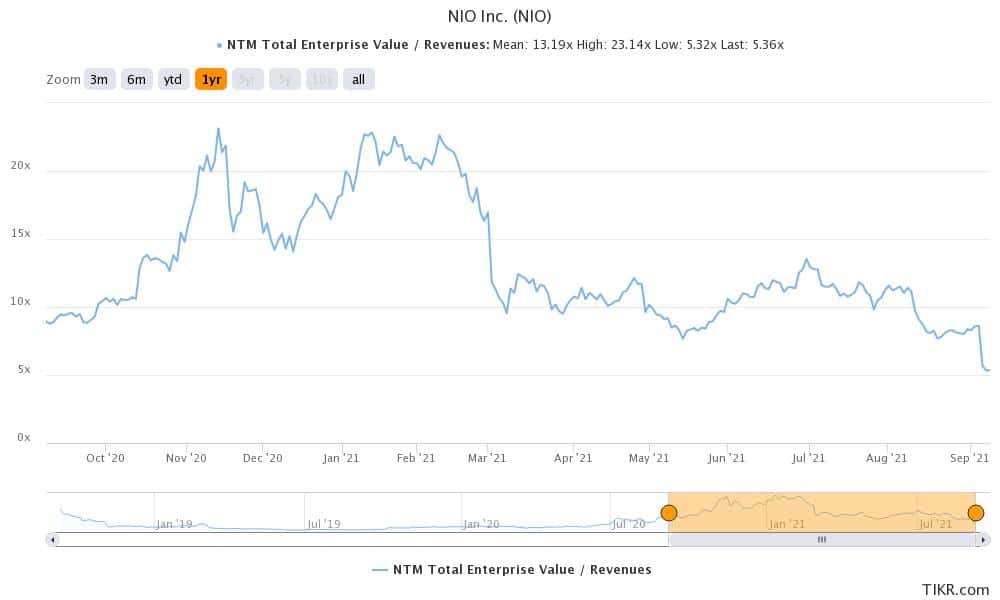
Recently, the company announced a $2 billion stock sale which led to a further sell-off in the stock. NIO has the tacit support of the Chinese government and the country has a special subsidiary category for battery swapping where only NIO qualifies. The country also bailed out the company when it was struggling with capital raise last year. Over the long term launch of new models and entry into new markets will drive value for investors.
NIO has already announced an expansion in Europe beginning with Norway and hinted at targeting Germany next. Tesla is also setting up a Gigafactory in Berlin to meet the growing demand for its electric cars.
Analysts are bullish on NIO stock
Wall Street analysts are quite bullish on NIO stock. Of the 20 analysts covering the stock 17 rate them as a buy while two analysts have a hold rating. Only one analyst has rated NIO as a sell or some equivalent. Its median target price of $61.20 is a premium of 58% over current prices.
NIO has a strong product proposition and the valuations now look much more reasonable after the crash. There are short-term hiccups for the company and it had to tone down the third-quarter delivery guidance amid the chip supply situation. However, it still remains among the best EV stocks to buy and hold for the long term.
67% of all retail investor accounts lose money when trading CFDs with this provider
-
Fisker (NYSE: FSR)
Fisker is a startup electric vehicle company and like Lucid Motors, it went public through a SPAC merger. The company expects to begin production of its first vehicle, the Ocean SUV in Europe next year. It has partnered with Magna to produce the vehicle.
For its second vehicle named Project Pear, Fisker has partnered with Foxconn to produce the vehicle. The company has priced its vehicles competitively and can give a tough fight to other electric vehicle companies.
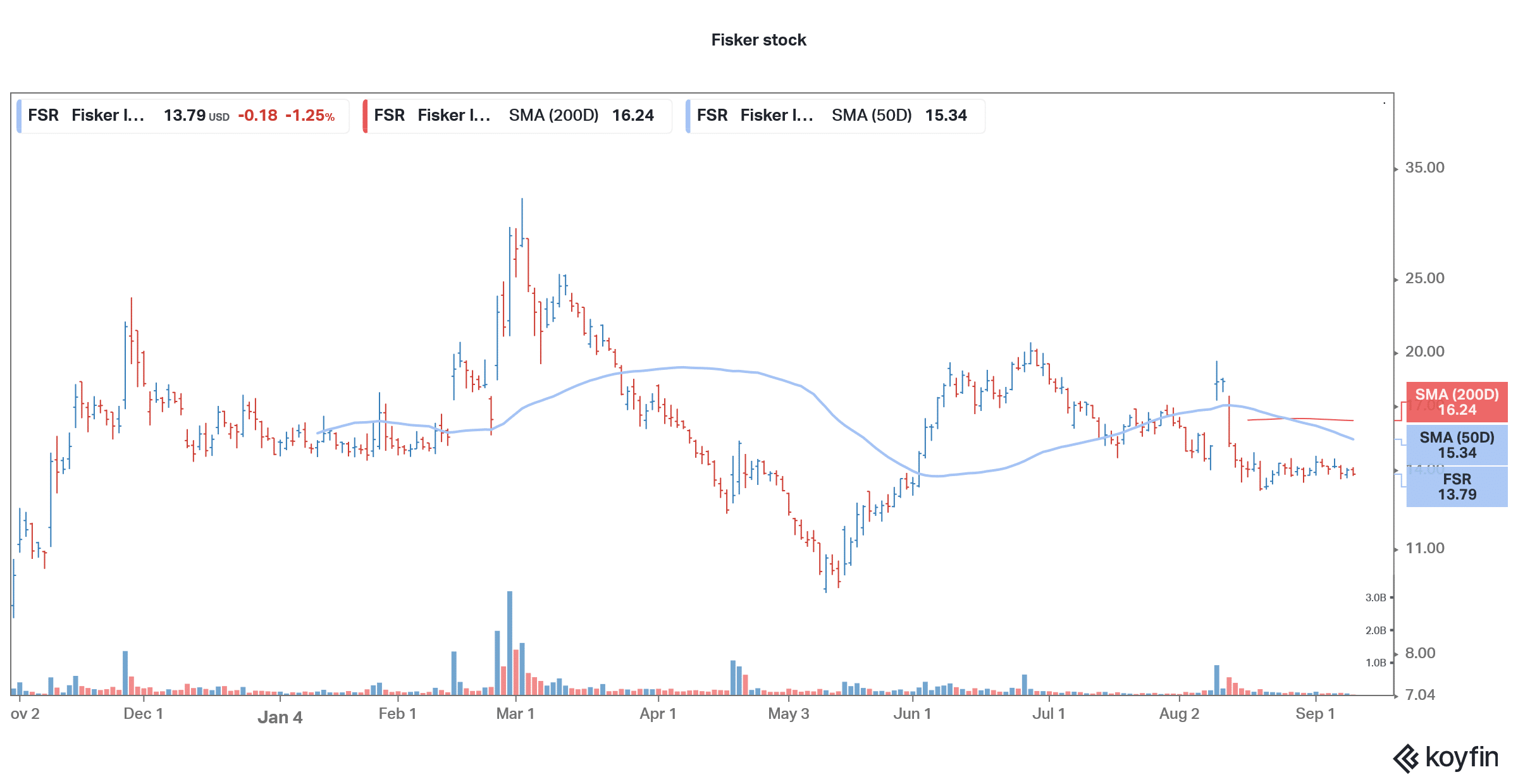
Analysts are bullish on FSR stock
While analysts have been bearish on several startup EV stocks, most of them are bullish on Fisker. its median target price of $24 implies a 74% upside over the next 12 months. Its highest target price of $40 is a premium of 190% over current prices. Of the nine analysts covering Fisker, five rate them as a buy while three rates them as a hold. One analyst has rated Fisker as a sell.
This year, several brokerages have taken a bullish view of Fisker and in April, Bank of America initiated the electric vehicle start-up as a buy. “Besides Chairman, Co-Founder & CEO Henrik Fisker’s experience, FSR’s key competitive advantages are interesting/attractive product and its platform sharing and contract manufacturing with Magna and Foxconn,” it said in the note.
Overall, given the partnerships that Fisker has formed and the attractive pricing point for its cars, it looks among the best EV stocks to buy especially in the startup space.
67% of all retail investor accounts lose money when trading CFDs with this provider
-
General Motors (NYSE: GM)
When we think of EV stocks, we generally tend to overlook legacy automakers. General Motors has become the first Detroit automaker to commit to a zero-emission future. GM has said that it won’t be selling ICE (internal combustion engine) cars beyond 2035.
Wall Street analysts are bullish on GM stock and its average target price of $73.86 an upside potential of 52.5% over current prices. Of the 14 analysts polled by TipRanks, 13 rate GM stock as a buy while one analyst has a hold rating. The stock had fallen last month after its second-quarter earnings had disappointed markets. However, most analysts saw the post-earnings dip as a buying opportunity.
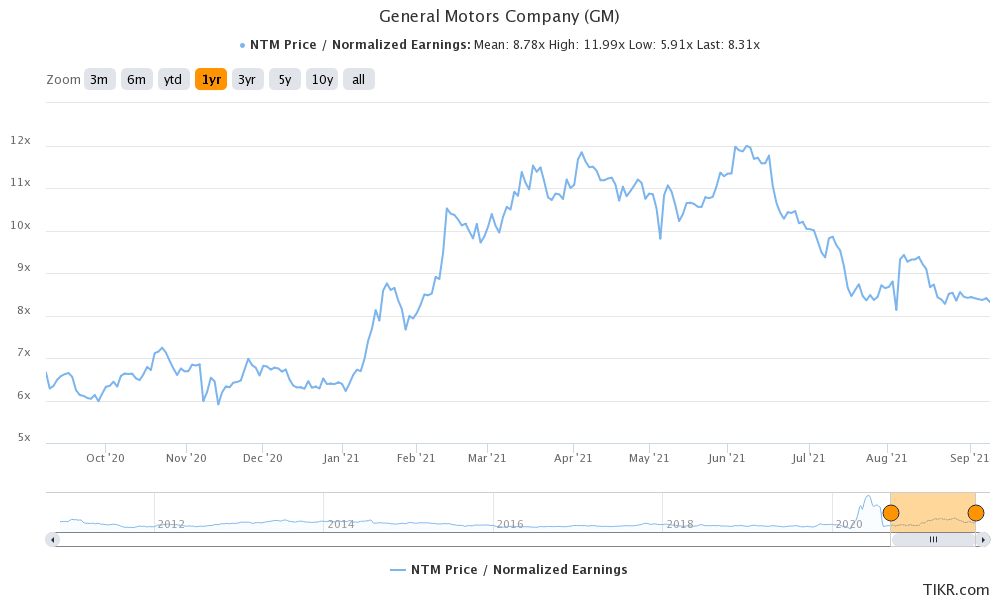
GM stock had fallen after earnings
“While 2Q results and 2021 guide came in soft, we think 2Q was impacted by one-time warranty charges that will reverse and management set an easy bar for 2H assuming lower volume sequentially as a result of chip shortage,” said Deutsche Bank analyst Emmanuel Rosner. He added, the stock to the short-term Catalyst Call Buy List and maintained a target price of $68.
All said, while legacy automakers like GM have seen some valuation rerating, there is still scope for expansion of their multiples. As GM scales up its electric vehicle sales, it could see further upside. While it is not an EV stock in the strict sense, it nonetheless is a play on the industry considering the massive investments that it has outlined towards electric vehicles.
67% of all retail investor accounts lose money when trading CFDs with this provider
-
REE Automotive (NYSE: REE)
REE Automotive also went public through a SPAC merger and currently trades at a discount of 40% to the SPAC IPO price. The stock, however, looks a good and niche play in the EV industry. All three analysts covering REE have a buy rating on the stock and its median target price of $15 is a premium of almost 150%.
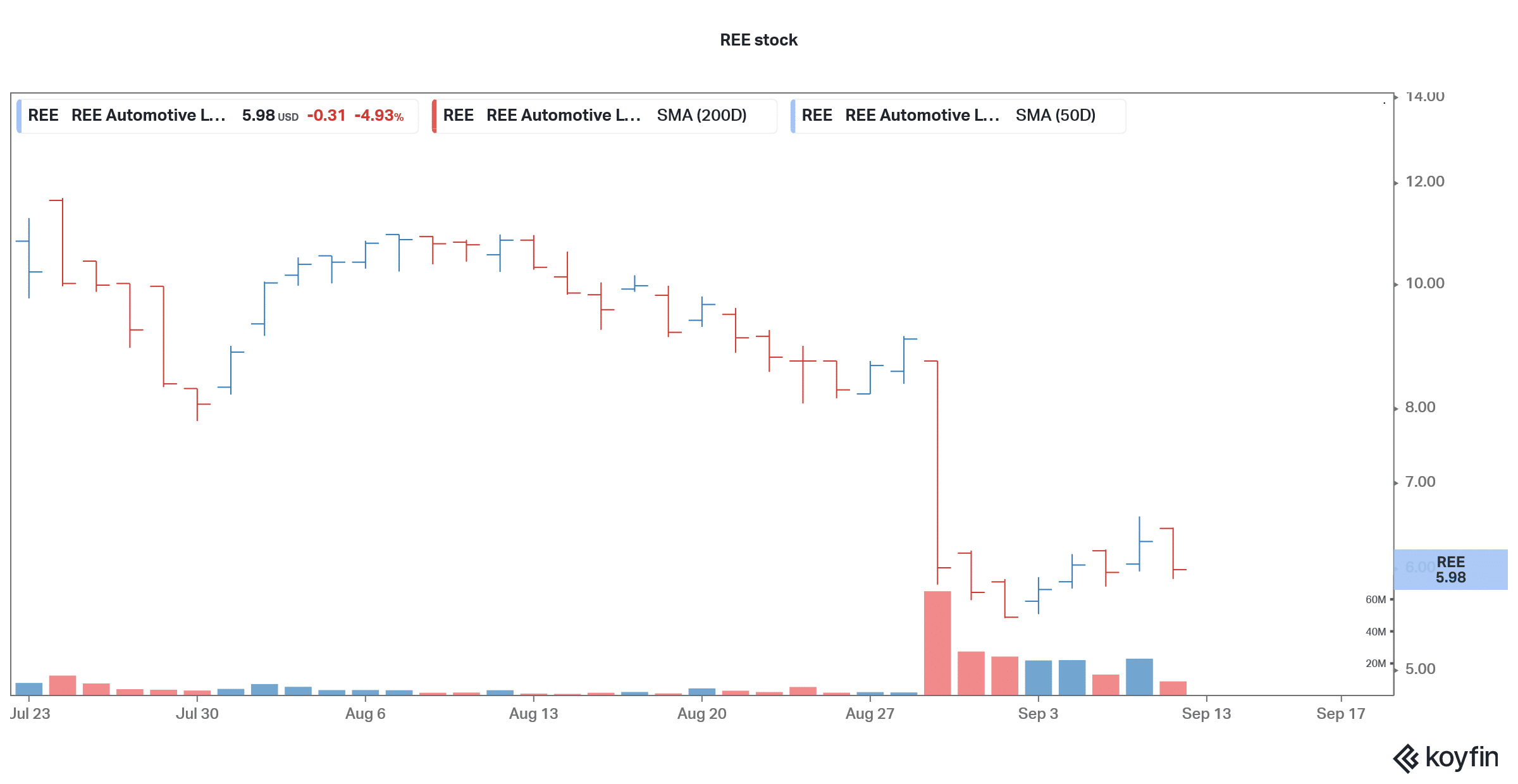
REE Automotive long-term forecast
REE Automotive expects to post revenues of $5.7 billion in 2025 and expects its EBITDA to rise to $904 million that year. To put that in perspective, its market cap is around $1.9 billion which gives us a 2025 price-to-sales multiples of only 0.33x.
The stock is currently out of favor with markets but looks like a good EV stock to buy and hold for the long term.






